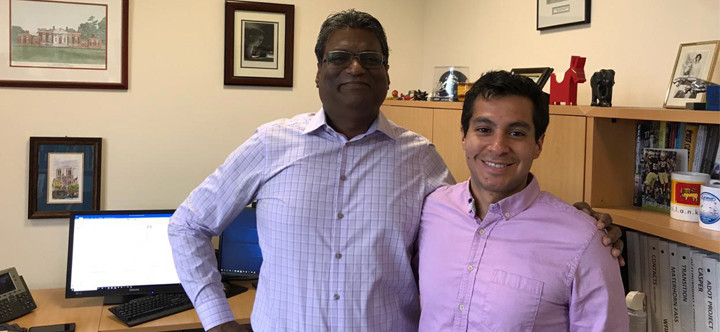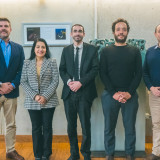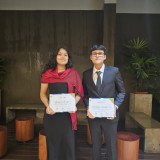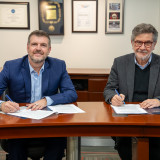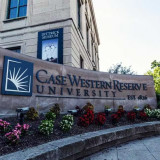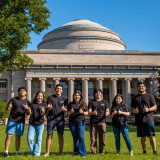- We are Utec
- Admissions
- undergraduate Programs
- Graduate School
- Companies
- Ventures
- Apply to UTEC
- English
- Español
Languages
Learn
About Us
Our Academic
Offer
Ingenuity,
dedication, and
the pursuit
of excellence
International
alliances
Learn
About Us
The university that empowers ingenuity, innovation, and entrepreneurship.
Our Academic
Offer
With our active learning methodology, our students experience engineering from day one.
Ingenuity,
dedication, and
the pursuit
of excellence
Our students' DNA: achieving highest academic achievement and personal development.
International
alliances
We've built strong relationships with the best educational institutions in the world.
Research
Experience
The right path to finding better solutions.
Sustainability UTEC
Sustainability documents
Contact:
Giancarlo Marcone
HACS DIRECTOR
gmarcone@utec.edu.pe
Learn
About Us
The university that empowers ingenuity, innovation, and entrepreneurship.
Our Academic
Offer
With our active learning methodology, our students experience engineering from day one.
Ingenuity,
dedication, and
the pursuit
of excellence
Our students' DNA: achieving highest academic achievement and personal development.
International
alliances
We've built strong relationships with the best educational institutions in the world.
Research
Experience
The right path to finding better solutions.
Sustainability UTEC
Sustainability documents
Contact:
Giancarlo Marcone
HACS DIRECTOR
gmarcone@utec.edu.pe
Daniel Horna, full-time professor of Environmental and Civil Engineering at UTEC and specialist in computer modeling, recently completed a successful stay at the University of Notre Dame in Indiana, United States. We talked with him to tell us more about this experience. This is what he told us:
How did the opportunity to go to the University of Notre Dame arise?
Some years ago, at an international conference that I attended, I had the opportunity to have my doctoral thesis advisor introduce me to Professor Joe Harindra Fernando. Since then, he continued his work and career, so I communicated with him, and I got the University of Notre Dame to invite me to work on projects with him. Then, I applied to Fondecyt and I won the financing of the trip. My expectation was to take advantage of the holidays to learn more about the behavior of the atmosphere.
Tell us more about your Professor; we know that he is well known in his field ...
Professor Joe Harindra Fernando is one of the most recognized specialists worldwide in atmospheric issues. He focuses mostly on trying to understand the physical behavior of the atmosphere. He has published more than 275 documents about basic fluid dynamics, experimental methods, oceanography, atmospheric science, environmental science and engineering, air pollution, alternative energy sources, acoustics, heat and hydraulic transfer, rivers and fluids. Currently he is working on different projects in different parts of the world, such as in India, Portugal and Canada.
We would like to know more about the projects you were involved in...
Although I supported several projects, one of the ones I was most involved with was Canada, where Newfoundland Island is located. There, mist is created without further explanation. This generates many problems in terms of visibility, not only for people but also for ships and boats. One of our hypotheses is that the island itself generates it, because it creates turbulence, amplifying the mixing processes, and finally, helping the formation of fog. It is a very complex project and at the same time interesting.
Another project that is important to highlight is the one in Portugal. There, they want to install a farm of wind turbines and the suitable place to install it is in the mountain ranges, because there are the strongest winds; In addition to being remote areas where there is not much population that can be affected by noise. The problem is that the mountain ranges, being complex topographies, make the wind behave in a very confusing way. Therefore, before installing a turbine it is vital to know the direction and speed of the wind with a certain level of reliability. It is a very challenging project!
How do you think this stay has contributed to your professional growth?
Without a doubt, it has been an integral experience, because not only I have acquired new knowledge, but I have had the opportunity to work with an atmosphere issues guru. Working with Professor Harindra has given me a new vision of the complexity of this branch of research, and the need to study the atmosphere for the proper development of renewable energy, air quality and its relationship with the quality of life of people , infrastructure development, among others. For example, in my thesis, I modeled, mainly, floods, breakages of dams and even lakes. Now I have learned atmosphere topics. In the future, I would like to expand my knowledge in this branch, and even understand its relationship with the ocean.
What do you think can be the impact of this experience in your students?
It is very important that professors and researchers are aware of the research projects that take place in the best universities in the world. This allows that the research projects that we develop in UTEC in the future can compete at an international level. This also has repercussions in the classroom. Now I return with a broader view of the issues that are considered most important internationally, and what kind of knowledge is necessary for students to count, if they want to get involved in a similar project in the future. I intend to incorporate this knowledge in the classes that I dictate in the near future.
On the other hand, the subjects that were considered the most important when I was a student are different from those that are considered important now, and in the future, these will continue to change as well. The internship at the University of Notre Dame has given me a fresh idea of the variation of these topics, and also, it has helped me to understand how these issues may vary in the future. So, when designing my classes, I not only focus on the past, and what happens now, but I can include topics that in the future, I believe, are going to be the most important.
Finally, in the Department of Environmental Engineering we want our students to get the best possible preparation in the different branches of Environmental Engineering, be it biology, solid waste, water treatment, ocean, among others. One of these branches, precisely, is the atmosphere. The internship at the University of Notre Dame has made this branch of research / teaching in the UTEC strengthened in the future.
Would you like to say something additional?
I would like to thank UTEC, CITA and Fondecyt for supporting me in this internship, as well as the University of Notre Dame for extending me the invitation to be part of their research team for these last two months.
EN UTEC VENIMOS DESARROLLANDO LA TECNOLOGÍA
Y LA INGENIERÍA QUE NECESITA EL MUNDO DEL MAÑANA
Carreras en ingeniería y tecnología que van de la mano con la investigación y la creación de soluciones tecnológicas de vanguardia, comprometidas con las necesidades sociales y la sostenibilidad.
Decide convertirte en el profesional que el mundo necesita. Estudia en UTEC y lleva tu ingenio hacia el futuro.
Noticias recientes
-
- STUDY ABROAD
- Studying in Peru
- Living in Peru
- FAQ
- Application Form
- Contact us
-
- EXECUTIVE EDUCATION
- Executive Education
- Short Courses
- Inhouse Courses
- Calendar
